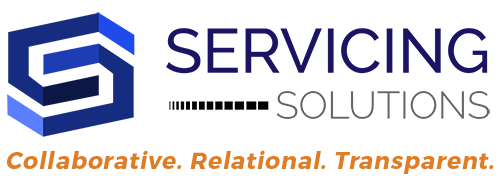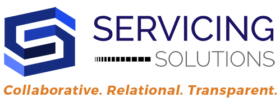Welcome to the eighth and final installment of our “Cultivating Call Center Excellence” series. In this blog, we will discuss effective strategies for continuous improvement and career advancement in the servicing and collections field. As the industry evolves, staying ahead necessitates ongoing learning, adaptability, and a commitment to excellence.
The Importance of Continuous Improvement
In the fast-paced world of collections, stagnation is not an option. Continuous improvement is vital for several reasons:
- Regulatory Changes: The laws and regulations governing collections are frequently updated.
- Technological Advancements: New tools and systems continuously emerge to enhance efficiency.
- Evolving Customer Expectations: Customers increasingly demand personalized and empathetic service.
- Competitive Edge: Enhancing your skills ensures you remain valuable to your organization and the industry.
Key Areas for Continuous Improvement
Legal and Regulatory Knowledge
- Action Step: Subscribe to industry newsletters and regulatory updates.
- Example: Dedicate time each week to review recent changes in collections laws.
Technological Proficiency
- Action Step: Stay current with the latest collections software and tools.
- Example: Volunteer to beta test new features in your company’s CRM system.
Communication Skills
- Action Step: Regularly seek feedback on your communication style and effectiveness.
- Example: Record and review your calls to identify areas for improvement.
Negotiation Techniques
- Action Step: Practice advanced negotiation scenarios with colleagues.
- Example: Role-play complex collection cases to refine your approach.
Financial Analysis
- Action Step: Enhance your understanding of financial statements and credit reports.
- Example: Take an online course in financial analysis tailored for collections professionals.
Strategies for Continuous Learning
Set Personal Development Goals: Create SMART (Specific, Measurable, Achievable, Relevant, Trackable) goals for your professional growth.
- Example: “I will increase my successful negotiation rate by 10% within the next quarter by implementing advanced techniques learned from training.”
Seek Mentorship: Identify a more experienced colleague or leader to guide you.
- Example: Schedule monthly check-ins with your mentor to discuss career growth and challenges.
Participate in Industry Events: Attend conferences, webinars, and workshops related to collections.
- Example: Present a case study at a local industry meetup to share your experiences and learn from peers.
Cross-Functional Learning: Gain exposure to other departments that interact with collections.
- Example: Shadow a colleague in the legal or customer service department for a day.
Continuous Education: Pursue relevant certifications or additional education.
- Example: Enroll in a course on data analytics for collections to enhance your analytical skills.
Career Advancement Pathways in Collections
Team Lead or Supervisor
- Skills Needed: Leadership, performance management, and advanced collections knowledge.
- Action Step: Take on additional responsibilities in training or mentoring new team members.
Collections Manager
- Skills Needed: Strategic planning, team management, and in-depth industry knowledge.
- Action Step: Develop a comprehensive understanding of your organization’s collections strategies and goals.
Compliance Specialist
- Skills Needed: Detailed knowledge of regulations, audit processes, and risk management.
- Action Step: Volunteer to assist with internal audits or compliance reviews.
Analytics and Strategy Specialist
- Skills Needed: Data analysis, strategic thinking, and technology proficiency.
- Action Step: Propose and lead a data-driven project to improve collections efficiency.
Collections Consultant
- Skills Needed: Broad industry knowledge, problem-solving, and client management.
- Action Step: Build a diverse portfolio of experiences within your organization to prepare for consulting roles.
Building Your Personal Brand
Develop a Professional Online Presence: Create and maintain a professional LinkedIn profile.
- Example: Share industry insights and engage with collections-related content on professional platforms.
Contribute to Industry Publications: Write articles or blog posts on collections topics.
- Example: Submit a case study to an industry journal highlighting an innovative approach you’ve implemented.
Network Actively: Join professional associations related to collections and financial services.
- Example: Attend local chapter meetings of the Association of Credit and Collection Professionals (ACA International).
Leader’s Playbook: Fostering a Culture of Continuous Improvement
For managers and team leaders, consider the following strategies:
Implement a Learning Management System (LMS): Invest in an LMS tailored for collections training and development.
- Resources: Curate a library of courses, webinars, and resources for continuous learning.
- Measurement: Track completion rates and knowledge retention through quizzes and assessments.
Create Individual Development Plans (IDPs): Work with each team member to create personalized IDPs.
- Resources: Provide templates and guidance for creating effective IDPs.
- Measurement: Review progress on IDPs during regular performance discussions.
Establish a Mentorship Program: Pair experienced collectors with newer team members.
- Resources: Provide mentorship training and guidelines for effective partnerships.
- Measurement: Survey participants to assess the program’s impact on skill development and job satisfaction.
Encourage Innovation: Create channels for team members to propose and implement process improvements.
- Resources: Allocate time and resources for testing new ideas.
- Measurement: Track the number and impact of implemented innovations.
Recognize and Reward Growth: Implement a recognition program for continuous learning and improvement.
- Resources: Establish clear criteria for recognition and provide meaningful rewards.
- Measurement: Monitor the correlation between learning engagement and performance metrics.
Continuous improvement and career advancement in collections require a proactive approach to learning, adaptability, and a commitment to excellence. By focusing on ongoing skill development, staying current with industry trends, and actively pursuing career growth opportunities, you can build a rewarding and successful career in collections.
Remember:
- Set clear goals for your professional development.
- Seek out learning opportunities both within and outside your organization.
- Stay current with industry trends and technological advancements.
- Build a strong professional network.
- Take ownership of your career path.
By embracing continuous improvement, you not only enhance your own career prospects but also contribute to the overall advancement of the collections industry. Your journey in collections is an ongoing process of growth and learning—embrace it with enthusiasm and dedication!


